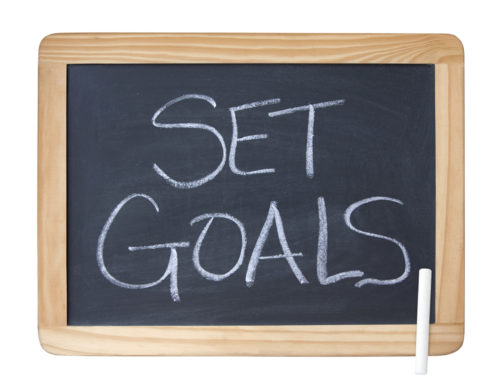 It’s quite common to hear of people taking up health and fitness endeavours for the sake of improving their personal self-confidence, which for whatever reason may have taken a hit.
It’s quite common to hear of people taking up health and fitness endeavours for the sake of improving their personal self-confidence, which for whatever reason may have taken a hit.
I certainly condone that effort because I firmly believe that health and fitness does bring about a personal confidence not just due to looking and feeling good but because of the empowerment one has when they realize the control or influence that they have over their own life (and that’s an area we have influence over). But not only that, over the years I’ve seen convincing evidence of the benefit flowing in the other direction, where confidence and self-efficacy improves health and fitness.
Self-efficacy compared to Confidence
Now, self-efficacy isn’t exactly that same thing as confidence as you’ll see shortly, but because efficacy involves a more task-oriented belief in our ability when we practice and get better at something our efficacy in that area improves and so we enjoy it more, we feel like we have more control over it and therefore adhere to it more consistently (unlike daunting tasks which we easily put off) and in turn get better results, further improving the efficacy.
I mentioned there is a difference between efficacy and confidence. I can be confident that I’ll fail miserably at a given task. Efficacy is more specific or task related and refers to a BELIEF one has in their personal competence in a given skill or to acquire a certain outcome in a task. A person can have confidence in a very general sense, as in ‘she’s quite a confident person’ but that has nothing to do with that persons belief in their ability to successfully fix their car engine, or cook a spinach soufflé, or pass a maths exam. Each of these tasks is specific and our efficacy changes with each task. General confidence is certainly a very good thing, and we find that people with low confidence struggle in many areas particularly social settings. But if we can improve self-efficacy in the area of health and fitness then you’ll find we also increase our enjoyment, adherence and results.
So what you’re after is both general confidence and efficacy in certain areas of your life, notably health and fitness or any other endeavour you want to master. We can’t expect to be awesome at everything and have high efficacy in every task, hobby or facet of life, but mastering the ones that are important to you will go a long way in improving results in those areas and your quality of like.
Improving Self-efficacy
Professor Albert Bandura is a Canadian/American psychologist who was an originator of the theoretical construct of self-efficacy. In his work we find four modes of influencing sources of self-efficacy. By understanding these we can put into place powerful methods of improving efficacy and hence results in the area of health and fitness. One thing I want you to keep in mind while reading Bandura’s suggestions is that one of the biggest DE-motivators I’ve ever seen in my years working with individuals from all walks of life is futility. Nothing kills the motive to achieve more than the deep-seated belief that all efforts will be totally in vain.
Self-Efficacy Builders According to Bandura

1) Mastery experiences – whereby successes build a robust sense of self-efficacy whilst failure diminishes it. The more we do something and the better we get at it the more our sense of being ABLE to do it becomes robust which helps fuel our confidence to do it and succeed at it perpetually.
2) Social modelling – seeing others similar to oneself achieve their goals through their effort and persistence are sources of aspiration and motivation which raises the observer’s belief in their own abilities. The benefit of mentors and even peers that have succeeded or are doing what you aim to do is paramount. So hang around winners as they say. Read books or magazines that feature real-life stories of people in your position that have made it. Find others who have walked the road you intend to trek and follow those steps.
3) Social persuasion – aim to become a self-efficacy builder for others by creating optimal situations/environments which promote successes and avoid failures. Help others and you help yourself, just like they say teaching is a great form of learning.
4) Physical and emotional states – positive mood enhances self-efficacy and negative mood diminishes it. Your daily states and well being in general, therefore, is central for your self-efficacy.
If you apply the suggestions in Bandura’s model this helps further define self-efficacy as a perceived belief which affects our actions and in turn our actions affect our self-efficacy. We can see how confidence (in the general sense) has a positive effect on one’s self-efficacy but the opposite may not necessarily be true, as each specific task or skill can have ranges of efficacy despite a given level of general confidence.
The Role of Efficacy in Health and Fitness
The relevance of efficacy in fitness is simply this; high efficacy improves both expectation and adherence which both relate to enhanced results, and in turn a greater level of enjoyment, since lack of results, and futility as we mentioned before, certainly don’t correlate with enjoyment for anyone.
When Henry Ford said, ‘Whether you think you can or think you can’t, you’re right!’ there is a lot of validity according to the self-efficacy theory. And now we know how to make the ‘think you can’ part more likely. Put your attention on building the BELIEF in your ability to accomplish a task or goal and the end result will ultimately be superior.





